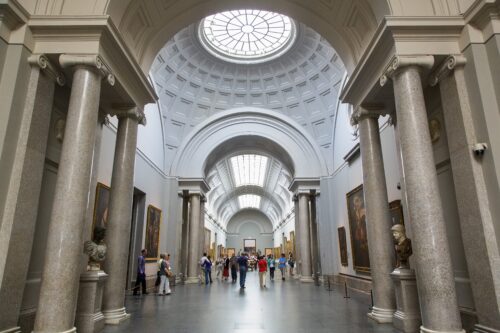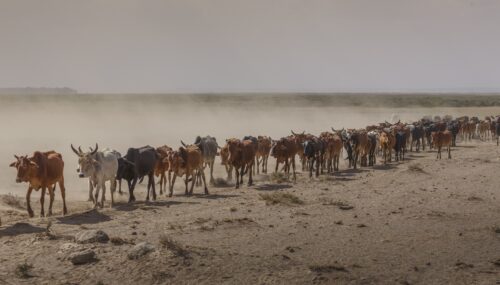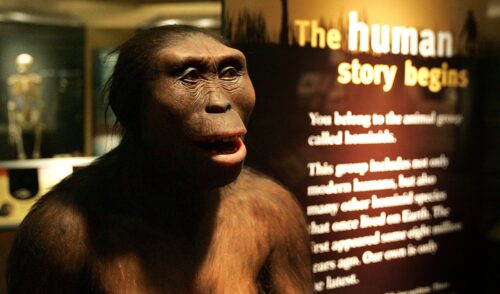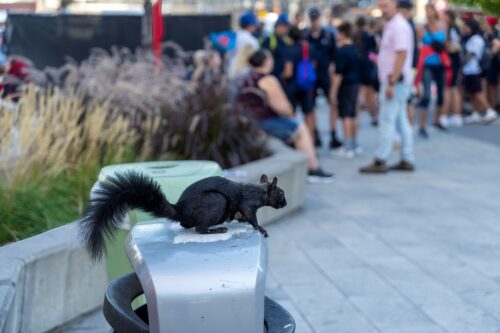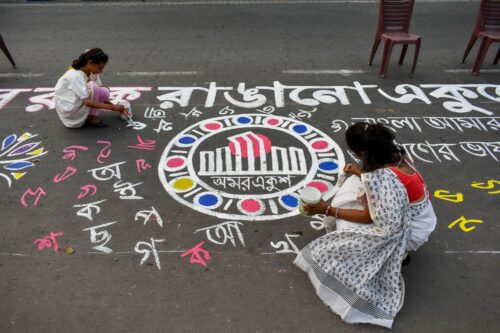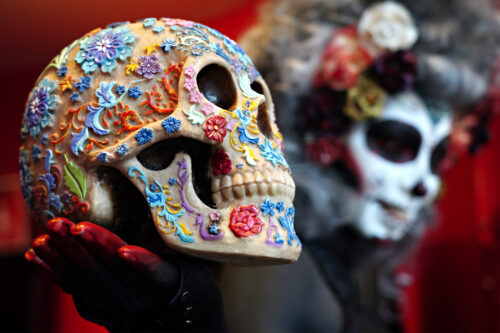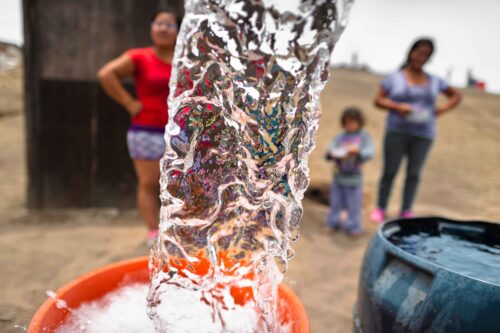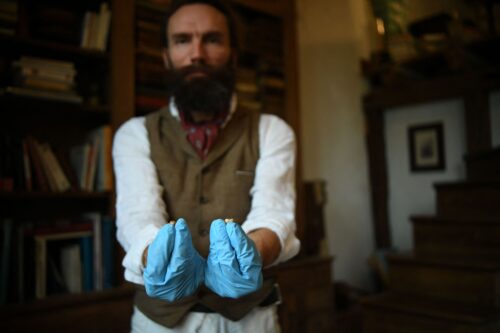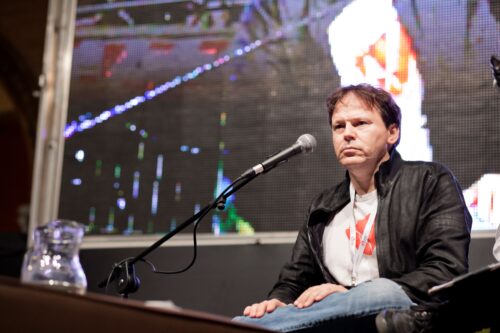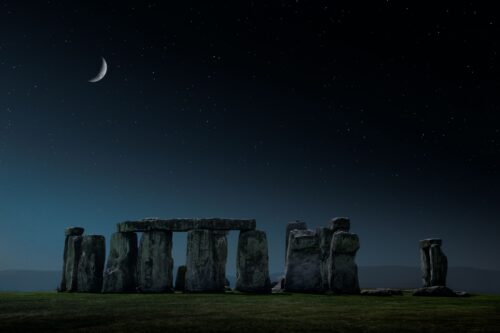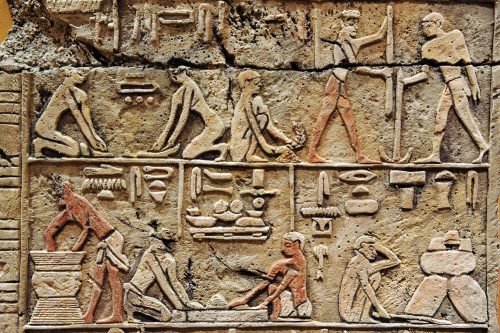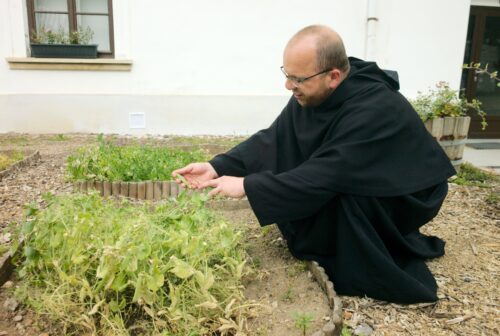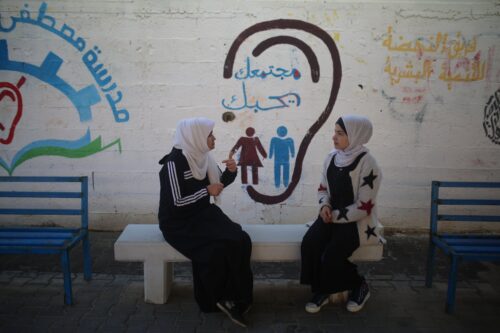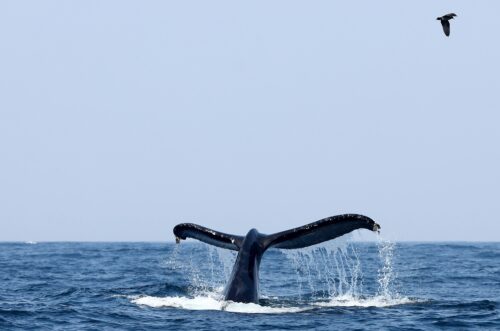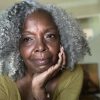Are We So Different?

“Are We So Different?” is part of the collection Lead Me to Life: Voices of the African Diaspora. Read the introduction to the collection here.
When the end comes
[1]
[1]
This piece was inspired by the American Anthropological Association’s exhibit called RACE: Are We So Different?
our minute genetic differences will be obliterated.
We will be reduced to bones, shriveled skin, and,
eventually,
dust,
or the ashes of cremation.
And our simple DNA material (our genes)
will be tested and processed
to determine who we really were.
And what will your DNA say about you?
Will it show whether you lived a life of acceptance and inclusiveness;
will it be able to pinpoint
if you spent your short or long life hating?
Will it tell a story of someone so enraged
by racial myths that they would murder nine innocent people
in a Charleston church, and after praying alongside them?
The definition of a species
is that we can reproduce together;
slavery and the institutionalized rape
of young Black girls and women for lust and profit
prove we are of the same human species;
we definitely reproduced.
And, please, do not portray Sally Hemings
as Thomas Jefferson’s “mistress.”
She was his slave, his property,
and he could do with her as he pleased:
and it did not “please” him to free her,
though she persuaded him
to eventually free the children she bore
carrying his genes.
No more denials or prettifying of history.
The rape of Black enslaved women is evidence that the idea
of “pure races” is a myth,
an urban legend, like the boogie man.
Today I look into the blue eyes and kinky blond hair of a Black man
and know that somewhere deep in his gene pool
there is whiteness inside his Blackness.
I need only be in a room full of Black people
and marvel at the phenotypic heterogeneity.
Blackness is America’s rainbow.
I also think of the almost white Black people (passe blanc),
and know there is Blackness inside America’s whiteness,
of which it is sometimes unaware.
And still these surfaces, skin deep characteristics,
tell us virtually nothing
about our genetic composition.
Or how we navigate our lives
across ideological spheres (fears)
of white supremacy, white privilege, enslavement, racism, sexism, xenophobia, homophobia,
heterosexism, ageism that plague our united history
despite our common origins out of Africa.
Blackness is America’s rainbow.
Are We so Different
if we both bleed when you cut me;
if Ebola or Tika, and now COVID,
can infect us regardless of our race?
Disease and viruses know no borders;
They have no respect for mythic racial classifications—
they are making us all sick and killing us, too,
across racial boundaries.
Are WE SO Different?
If we both share in karma—mine a legacy of enslavement,
living and resisting oppression and generational inequality;
yours of being descended from my oppressors and the beneficiary
of living (and sometimes resisting)
generational (white) privilege, white power, white entitlement?
ARE WE SO Different?
If we both suffer?
Yours a suffering of utter denial of racism
and lack of accountability
about the implicit biases and microaggressions
you act out daily
with non-white people you encounter;
mine a suffering of the daily stress of living while Black,
and wanting just a brief respite
from having to negotiate your power and privilege.
Mine is an exhausting dance
of humiliation, frustration, anger, resistance, and triumph—
knowing that the cycle is still unbroken,
and the same events of exclusion will start again when I awaken tomorrow
brings on a fibromyalgia-like fatigue.
I
ache
everywhere
sometimes.
ARE WE SO DIFFERENT
if we both seek solutions
to how to break the cycle
of inequality, of racial gaps, of social disparities?
Solutions to how you can step outside
your personal privilege & power
and institutional and structures of racism that undergird your power and privilege (your P&P)
to embrace me for who I am?
I want a brief respite
from having to negotiate your power and privilege.
And after centuries of trying to “move on”
and a pathology of forgiveness, can I stop seeing
an oppressor in the eyes,
gestures,
insults,
microaggressions,
disdain,
and neglect
of every white person?
Even those who claim to be my ally,
but whose behavior suggests otherwise?
The answers are quite simple:
Racism and inequality function on two levels:
the individual/personal and the institutional/structural.
Stop being offended at the very personal level—
“get over” being accused of being racist.
Then, check yourself to see how often you manifest
unconscious bias and display microaggressiveness.
Focus on challenging yourself
and structural inequality—
for example, if all the leaders are white and/or male,
if the majority of teachers are white women,
and half the students are non-white,
we have a structural problem.
When the people of color have more experience
than those who supervise them,
and there is support for white incompetency
because whites who fail are rotated out
and placed on “special projects”
or made “special assistants to … the whatever,”
where staff of color are dismissed
for “not being a good fit,”
when the metrics used to measure success
focus only on cultural differences
in hair, speech, body language, body type, clothes,
and the comfort level of white colleagues,
Dallas, we have a huge structural problem: racism.
Case in point: If former President Obama
had taken just one of the actions
of the 45th president,
talked about alternate “truths,”
engaged in the irreverent, personalized tweeting attacks,
shared national security info with Russia,
a known enemy of our nation-state,
attacked the media as “fake news,”
there would have been an irreversible tide
from all (white) sides of the political spectrum
demanding his impeachment.
In this regard, the consequences
of a racialized system of inequality, says, yes,
we are very different.
VERY DIFFERENT.
Whiteness and maleness
carry a universal credit card
of unmitigated freedom
to abuse power and privilege.
And what is my place and purpose
as a Black woman,
a descendant of formerly enslaved people
in this landscape
of surging whiteness and privilege?
We are two possibilities in America’s dilemma.
It is to know I am a “Native-born” daughter,
with no “immigration” card
or country to “go back to.”
It is NOT to see myself as victim only,
despite the best efforts to make me so.
My place and my purpose is to brand myself
always as a champion, defender of myself,
my people, and any other groups and individuals
who face oppression and exclusion.
My Place is to remain ever vigilant and fight
social injustice wherever it rears its ugly head.
My Place is to make This Place,
this United States, which too often
is far from united,
to make This Place a better place for all,
and not to be overlooked and dismissed because
I am a “Native-born, authentic, Black American,”
a descendant of the enslaved Black people
whose labor and whose love for this country,
have been the foundation of America’s hope and possibilities,
even when it denies the same to us.
ARE WE SO VERY DIFFERENT?
I think not.
We are simply two sides of the same coin,
unfortunately entangled
in both historic and present-day webs of history,
and the evidence of the seen and unseen legacy of racism
and a people’s struggle for liberation.
We are two possibilities
in America’s dilemma.
We can choose to enmesh ourselves
in prejudices and racism,
or choose to be humane,
thereby coming to terms with our fate
of the very same human mutuality.



